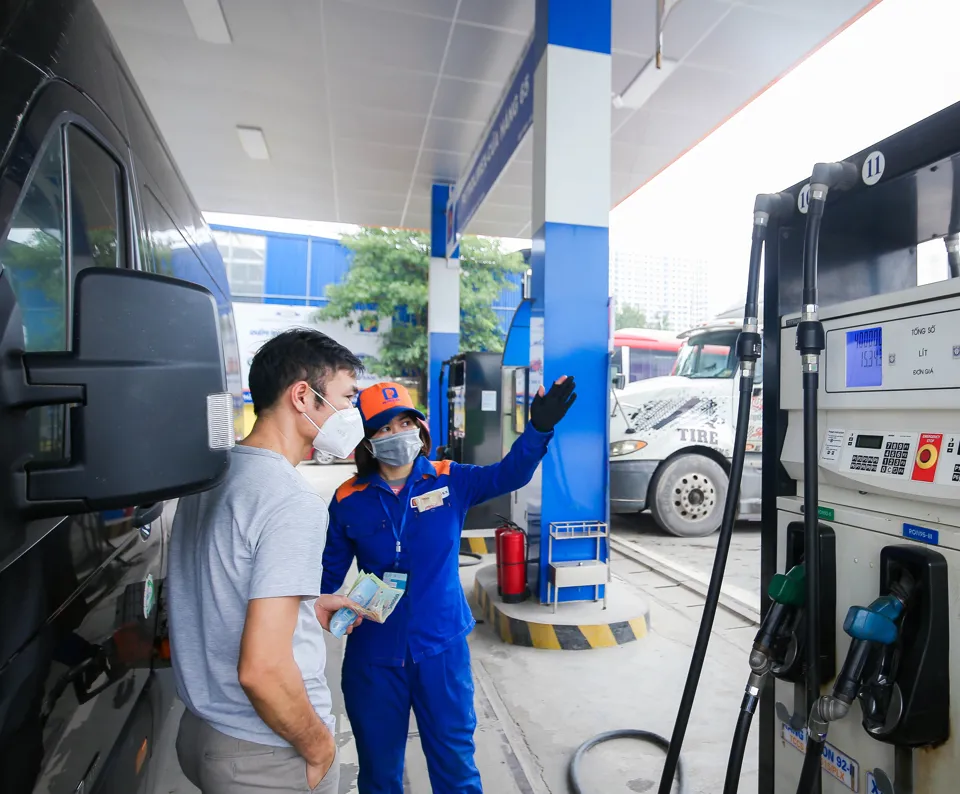Gov’t mulls creation of oil and gas trading exchange
Such a platform would help minimize price manipulation, ensure a flexible pricing mechanism, and improve the distribution and circulation of oil and gas.
Deputy Prime Minister Le Minh Khai has tasked the Ministry of Industry and Trade with reviewing and researching the establishment of an oil and gas trading exchange.
| A gas station in Hanoi. Photo: Thanh Hai/The Hanoi Times |
This directive was issued by the deputy prime minister on July 18. The Ministry of Industry and Trade is required to work with relevant stakeholders to study this initiative and report back to the Prime Minister by the end of July if the proposal exceeds their authority.
The concept of establishing an oil and gas trading exchange had been previously suggested by several experts and businesses.
During a seminar in May, the CEO of Petroleum Additives and Products Development Joint Stock Company Hoang Trung Dung noted that currently, key distributors purchase oil and gas from two domestic refineries and through imports. However, the Ministry of Industry and Trade is developing regulations that would prevent 300 distributors from buying products from each other or directly from the two domestic refineries.
The company's representative argued that these regulations would interfere with and limit the distributors' freedom. Therefore, he proposed that regulatory authorities study the possibility of creating a trading exchange for oil and gas, similar to the coffee trading exchange, to ensure transparency and enable distributors to access supplies.
Nguyen Hoang Dung, a member of the National and International Economic Advisory Group, said the establishment of an oil and gas trading bourse would bring numerous benefits, such as transparency of price and transaction volume information. This would minimize price manipulation, ensure a flexible pricing mechanism, and improve the distribution and circulation of oil and gas.
"Although there is still state monopoly, retailers are private, so setting up an exchange is feasible," Dung stated, adding that new regulations allowing a retailer to purchase from multiple sources also set the stage for creating an exchange.
However, experts emphasized that operating a trading exchange is a complex process requiring thorough preparation and the involvement of multiple stakeholders. Dung highlighted that independent regulatory oversight is crucial to prevent fraud and ensure energy security.
Regarding the modus operandi of the exchange, Dung suggested allowing both futures and spot contracts to provide risk management and investment opportunities. The exchange would utilize an automated, fair-matching system to ensure transparency in the pricing process.












